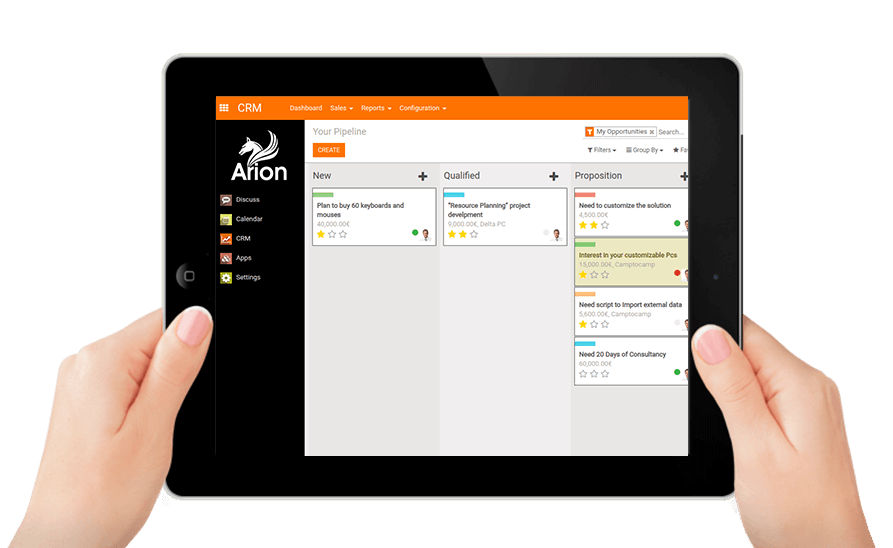Boost Our Customer Satisfaction with Powerful Customer Relationship Management Solutions
In the current intensely competitive business landscape, offering an exceptional customer experience has grown into a major concern for companies across different industries. Customers now demand customized interactions and smooth service at all touchpoint, and satisfying these demands requires a commitment beyond mere goodwill. This is where customer relationship management (CRM) software plays a crucial role. With advanced CRM solutions, companies can not just streamline their processes but also build long-term relationships with clients and customers.
CRM software offers a powerful toolkit that allows businesses to gather and examine customer data, monitor interactions, and manage communications effectively. With these insights, companies can tailor their offerings to meet the unique needs of every client, thereby enhancing satisfaction and retention. As we examine the multiple advantages of CRM solutions, it is apparent that investing in such technology can dramatically improve the total customer experience, revolutionizing the way businesses interact with their audience.
Advantages of CRM Solutions
CRM solutions delivers a wide range of perks that can substantially improve business operations. One of the primary advantages is the capability to consolidate client information. With customer relationship management solutions, all information related to clients, including purchase history, preferences, and contact history, is maintained in one accessible place. This allows businesses to have a comprehensive view of their customers, leading to more smart choices and customized marketing efforts.
An additional significant advantage of CRM software is improved communication and collaboration among employees. By offering a shared platform for sales teams, marketing teams, and customer support teams, CRM software facilitate better harmonization and guarantee that everyone is on the same page regarding customer interactions. This alignment leads to more coherent communication and a integrated experience for customers, ultimately boosting client happiness and retention.
Moreover, CRM software enhances productivity through automation of recurring tasks. By streamlining processes such as follow-up emails, setting appointments, and data input, businesses can liberate valuable time for team members to devote efforts to more critical projects. This not only improves productivity but also lessens the likelihood of mistakes, further improving the overall standard of customer interactions and care.
Key Features to Look For
When selecting a CRM system, one of the most crucial features to consider is user experience. An easy-to-navigate interface enables team members to adopt the software efficiently, reducing the time needed for training and increasing productivity. A smooth experience guarantees users can navigate through customer data, sales processes, and reporting features effortlessly. The less cumbersome the platform, the more likely your team will interact with its tools to improve client interactions.

Another essential feature is the ability to integrate. A powerful CRM should easily connect with other business systems, such as automated marketing platforms, email marketing services, and e-commerce solutions. This interconnectedness provides a holistic view of customer interactions and ensures data flows smoothly across departments. By having all information centralized, businesses can provide more personalized experiences and streamline operations significantly.
Finally, strong analytics and reporting tools are vital in a CRM solution. Such tools enable businesses to monitor key performance indicators, customer behavior, and sales trends throughout the year. Comprehensive insights enable teams to make informed choices, enhancing strategy and customer relations. With the right analytics, you can spot areas to improve and ultimately elevate your customer experience.
Executing CRM Solutions Efficiently
To implement CRM systems efficiently, organizations must begin with a solid grasp of their goals and customer requirements. This requires evaluating present consumer engagements and recognizing challenges that the Customer Relationship Management might address. Establishing crm software , such as improving customer retention or streamlining interactions, enables staff to pick the best Customer Relationship Management capabilities and resources that match with their corporate approach.
Education and onboarding are crucial components of efficient CRM implementation. Team members should be prepared with the required capabilities to use the latest software successfully. This can be achieved through hands-on instruction workshops, detailed user manuals, and regular support. Involving employees in the initiative encourages buy-in and fosters a environment of teamwork, ultimately improving the overall performance of the Customer Relationship Management system.
Finally, regular evaluation and adaptation are necessary for enduring performance. Organizations should regularly assess the performance of their Customer Relationship Management software, gathering input from users and customers alike. Evaluating data such as customer satisfaction and business efficiency can offer knowledge into dimensions for improvement. By promoting a cycle of feedback and refinement, companies can ensure their Customer Relationship Management systems remain congruent with changing client expectations and organizational goals.